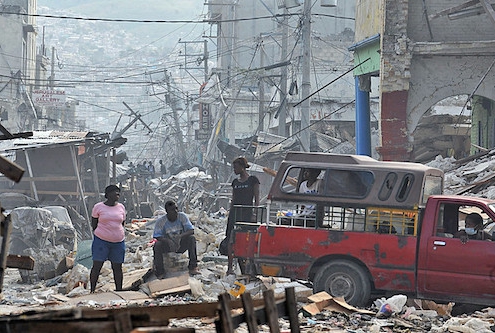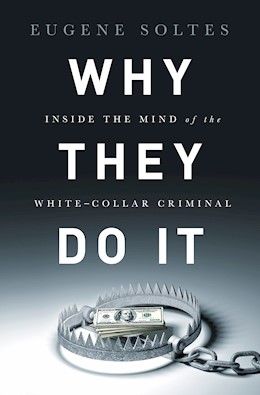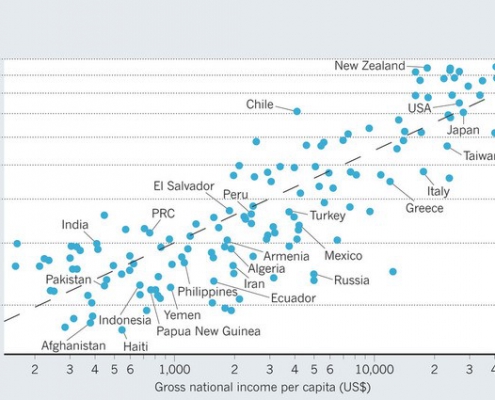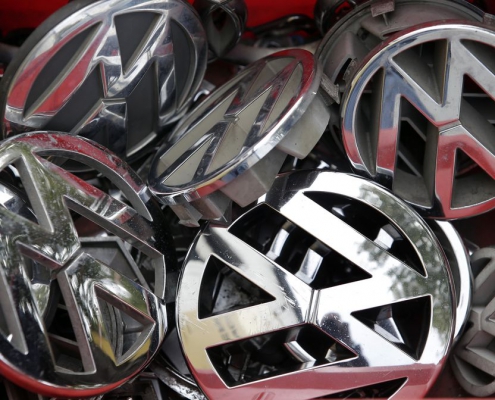Tag Archive for: corruption

It’s Time for a New Agenda for Business Integrity
Blog
Five Takeaways from the Luanda Leaks
Blog
Meet Alison Taylor, Ethical Systems’ New Executive Director
Blog
Anti-Corruption and Human Rights Efforts Will Converge in 2020
Blog
Featured Ethics and Compliance Expert: Hui Chen
BlogFeatured Interview: Hui Chen, Compliance and Anti-Corruption Consultant and First-ever Compliance Counsel Expert at the United States Department of Justice
 As the first lawyer to hold the post of Compliance Counsel in the DOJ, how would you articulate the goal of the DOJ’s expansion with respect to the role of compliance in corporate crimes?
As the first lawyer to hold the post of Compliance Counsel in the DOJ, how would you articulate the goal of the DOJ’s expansion with respect to the role of compliance in corporate crimes?
DOJ Policy requires federal prosecutors to consider certain factors in corporate prosecutions, including the state of the company's compliance program at the time the misconduct occurred, and any enhancements made in remediation to the misconduct. By creating the Compliance Counsel role, the Fraud Section in the Criminal Division sought to bring in-house expertise to that evaluation. In doing so, the Fraud Section both recognizes compliance as an area of professional expertise, and heightens the significance of that expertise as something that is critical to companies.

Risking Reputation Rarely Rewarded: Lessons From The Lending Club
Blog The recent news about Lending Club is a prime example of the reputational value of business ethics. Last week, The Wall Street Journal reported the company’s twisted fate – it went from receiving a Tribeca “Disruptive Innovation Award” in April (given to then-CEO Renaud LaPlanche) to suffering tumbling stock prices in May, plummeting from approximately $8 on April 1, to a low of $3.94 on the day (May 16th) the WSJ report came out.
The recent news about Lending Club is a prime example of the reputational value of business ethics. Last week, The Wall Street Journal reported the company’s twisted fate – it went from receiving a Tribeca “Disruptive Innovation Award” in April (given to then-CEO Renaud LaPlanche) to suffering tumbling stock prices in May, plummeting from approximately $8 on April 1, to a low of $3.94 on the day (May 16th) the WSJ report came out.

Never Black and White: Eugene Soltes Exposes the Gray
Blog White collar criminals typically conjure images of dark boardrooms, wealthy conspirators and syndicated, international crime rings. Yet, in a new book, Eugene Soltes shows white collar crime is less a cause of pernicious plots and more a product of a lack of focus, proximity and context.
White collar criminals typically conjure images of dark boardrooms, wealthy conspirators and syndicated, international crime rings. Yet, in a new book, Eugene Soltes shows white collar crime is less a cause of pernicious plots and more a product of a lack of focus, proximity and context.
What distinguishes Why They Do It from others on the subject is Soltes’ extensive use of almost 50 interviews with those convicted of white collar crimes- which he defines as individuals in high social standing who committed crimes while doing business. The main takeaway is that corporate leaders are more or less normal people, who are as susceptible to the same conflicts of interest and ability to rationalize decisions made in the moment as the rest of us. By virtue of their position, however, their decisions can do harm not only to themselves but also all with whom they do business.

Lapsed Priorities: New Survey reveals lack of focus on bribery and corruption
Blog If the following survey results are any indication, a betting man would be doubling down on increased FCPA cases in 2016.
If the following survey results are any indication, a betting man would be doubling down on increased FCPA cases in 2016.
The study by international law firm Hogan Lovells and reported in the International Business Times highlights that, for over half of multinational companies, fighting bribery and corruption does not feature as a main priority.
The piece reveals that old habits die hard. A focus on short term sales goals, making deadlines/sales quotas and operating in areas where bribery runs rampant contribute to a casual attitude towards maintaining ethical behavior and staying true to internal values and external regulations.

Earthquakes and Shaky Ethics: The Perils of Construction Corruption
Blog A study in Nature shows that our planet has a lot to teach us about business ethics. While we know that ethics pays, what is also now clear is that the absence of ethics can kill.
A study in Nature shows that our planet has a lot to teach us about business ethics. While we know that ethics pays, what is also now clear is that the absence of ethics can kill.
Nicholas Ambraseys of the Department of Civil and Environmental Engineering, Imperial College London and Roger Bilham from the Cooperative Institute for Research in Environmental Sciences and the Department of Geological Sciences at the University of Colorado, Boulder compared deaths from earthquakes and found that “83% of all deaths from building collapse in earthquakes over the past 30 years occurred in countries that are anomalously corrupt.” This is all the more staggering when you consider that the researchers removed any contributing factors, such as poor building materials, from their analysis.
The construction industry is an industry both highly valued and highly susceptible to corruption. Governments, regulators, businesses and workers all have a vested interest in reducing and eliminating bribery and other practices that put people at risk. Without a systemic approach to reducing corruption and improving ethics, it won’t just be buildings that crumble; trust, stability and the long-term viability of a governmental body also risk imminent collapse.

Very Worrying: VW, Leadership and Ethical Culture
BlogGuest post from Dennis Gentilin of the National Australia Bank and author of the forthcoming book, “The Origins of Ethical Failures”
 As we all know, last week the car manufacturer Volkswagen admitted to installing software in over 11 million of their diesel engine cars that was designed to cheat emission tests. At worst, some commentators have suggested that Volkswagen are responsible for the premature death of people with respiratory conditions. At best, it is extraordinarily deceitful and unethical conduct.
As we all know, last week the car manufacturer Volkswagen admitted to installing software in over 11 million of their diesel engine cars that was designed to cheat emission tests. At worst, some commentators have suggested that Volkswagen are responsible for the premature death of people with respiratory conditions. At best, it is extraordinarily deceitful and unethical conduct.
It is highly unlikely that a scandal of this magnitude is the work of a handful of rogues. Rather it points to a systemic disrespect for principled conduct at numerous levels of the organization. No doubt the pending investigation will uncover failures in governance and compliance. However, as with all corporate scandals of this nature, my hypothesis is that at least one (or some) of the following five factors would have been at play:
